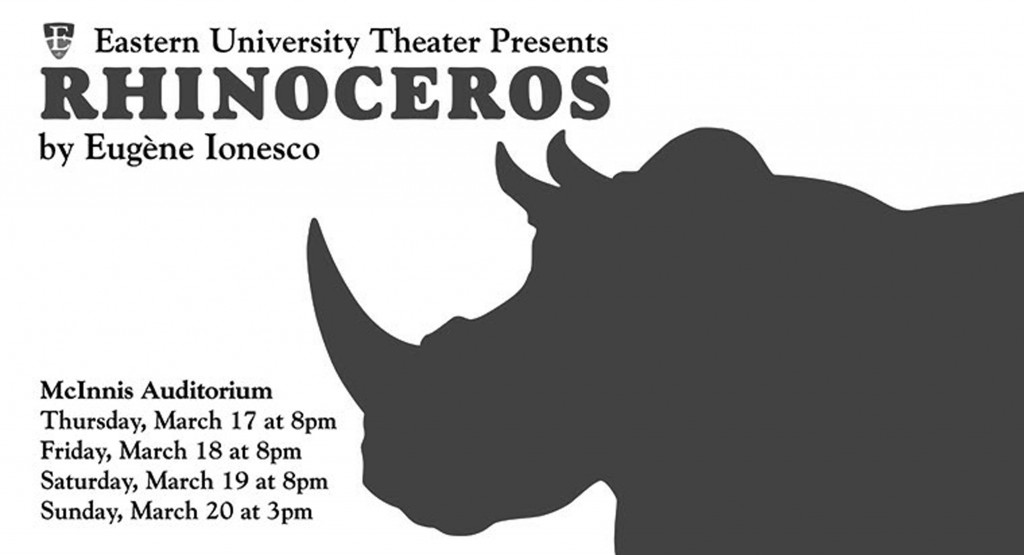On the face of it, Rhinoceros is a nonsensical comedy about people turning into rhinoceroses. Underneath it, though, there is a more serious dilemma.
The opening scene is silly, with difficult dialogue as it bounces between small groups processing the effects of a large rhinoceros running rampant through their Parisian town – or was it two rhinoceroses running through their town?
You’ll probably recognize the actors, and as they tossed lines between them I was especially impressed when lines were said in chorus. The stage direction in the first act was the best part; there is a definite rhythm, and the symmetry is pleasing and even calming to my midterm-rattled brain.
The second act is different, and for good reason. By this act it is clear who the protagonist is, Berenger, and we follow him as he watches his friends all conform to the rhinoceros trend. Jared Maier plays Berenger, and he does a fantastic job. The rhythm changes here because it shifts from the normal life of the first act. Berenger’s initial refusal to conform to the life of a rhinoceros leaves his life without any rhythm; the earlier symmetry of conformity and normalcy was so pleasant for the audience, it’s somewhat easy to understand why people would choose to join the new movement toward rhinoceros life: it may be crazy, but there is a certain peace in it, a certain familiarity, as at least rhinos have one another. Yet, Berenger chooses individuality (and even morality, perhaps?) over this new status quo, so the second act is full of turmoil as he is pulled between everyone and everything he knew. What will he choose? What will you choose?
Professor Tibbels explained that she chose this play because of its deeper meaning. The author, Eugene Ionesco, was writing during the Nazi takeover of France, so the silly comedy about people turning into rhinos takes a terrifying twist as each person transforms one by one: perfectly rational, kind, “normal” people into Nazis. Tibbels chose the play for this meaning, and its particular relevance in our lives on campus, in our churches, in our country, and even in the world. As a political science student, I immediately think of our current election, its amazing polarizing power, and the state of our country that lets certain platforms and opinions be viable.
This is a show worth attending, not only just to support your fellow students’ hard work, but also to laugh and ask yourself some important questions.

